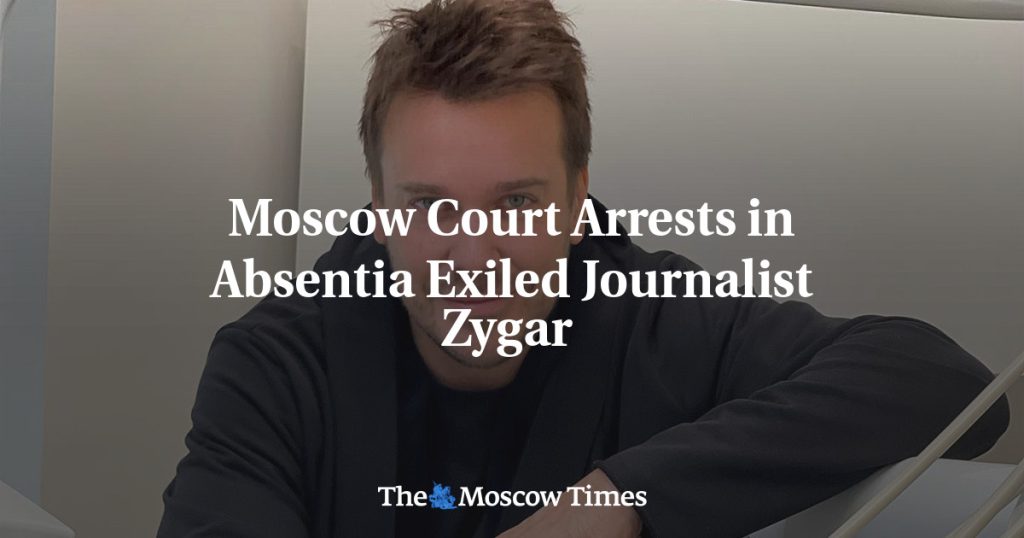Russian authorities have ordered the arrest in absentia of exiled journalist Mikhail Zygar for allegedly spreading false information about the Russian military, particularly regarding the atrocities committed by Russian troops in the Ukrainian city of Bucha. Zygar was added to Russia’s wanted list last week on unspecified charges, with reports suggesting that he could face up to 10 years in prison if convicted. Russian troops occupied Bucha in February 2022, resulting in the deaths of over 450 people, according to Ukrainian authorities. Despite these claims, the Kremlin has denied allegations of atrocities and instead accused Kyiv and its Western allies of staging the scenes.
Mikhail Zygar, a former editor-in-chief of the independent broadcaster Dozhd, has been living outside of Russia and was previously added to Russia’s list of “foreign agents” in October 2022. Following Moscow’s invasion of Ukraine, Russian authorities have initiated numerous criminal cases, with at least 297 cases opened for spreading false information about the war, as reported by the independent rights watchdog OVD-Info. Zygar’s case is part of a broader crackdown on dissenting voices and the press in Russia. The government has targeted journalists, activists, and opposition figures to silence criticism and control the narrative surrounding the conflict in Ukraine.
The situation in Bucha and the broader conflict in Ukraine has led to heightened tensions between Russia and the West. While Ukrainian authorities and international observers have documented numerous atrocities committed by Russian forces, the Kremlin has continued to deny any wrongdoing. The targeting of Zygar is another example of Russia’s efforts to suppress dissent and media freedom, particularly when it comes to reporting on sensitive political issues. By targeting journalists like Zygar, the Russian government is sending a message that independent reporting will not be tolerated and that those who spread what is deemed as “false information” will face severe consequences.
The arrest warrant issued against Zygar reflects the increasingly authoritarian nature of the Russian government under President Vladimir Putin. The crackdown on independent media and dissenting voices has intensified in recent years, with harsh laws and penalties targeting those who criticize the government or disseminate information that contradicts the official narrative. Zygar’s case is part of a broader pattern of silencing opposition and controlling the flow of information within Russia. The use of legal mechanisms to target individuals like Zygar is a clear indication of the government’s willingness to suppress dissent and maintain a tight grip on power.
The international community has raised concerns about the Russian government’s actions and the targeting of journalists like Zygar. Human rights organizations have condemned the arrest warrant and called for Zygar’s charges to be dropped, highlighting the importance of press freedom and the protection of journalists in conflict zones. The situation in Ukraine has sparked a broader discussion about disinformation, propaganda, and the role of the media in shaping public perception of the war. By silencing critical voices like Zygar, the Russian government is attempting to control the narrative and shape public opinion in its favor, despite evidence of atrocities committed by Russian forces in Ukraine.
As the conflict in Ukraine continues and tensions between Russia and the West escalate, the case of Mikhail Zygar highlights the challenges faced by independent journalists and media organizations in reporting on sensitive political issues. Despite facing potential arrest and imprisonment, Zygar and other journalists continue to seek the truth and shed light on human rights abuses and violations in conflict zones. The targeting of journalists and media professionals by authoritarian regimes is a threat to democracy and freedom of speech, and it underscores the importance of supporting independent journalism in the face of government censorship and repression.


